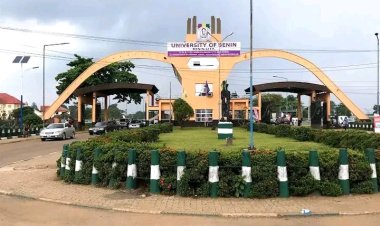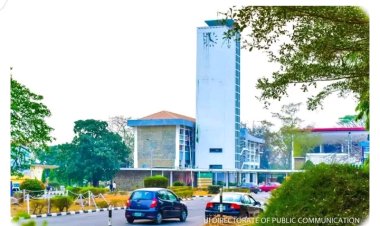FUNAAB Initiates Agricultural Revitalisation Programme to Tackle Food Security Challenges
FUNAAB (Federal University of Agriculture, Abeokuta) has launched an Agriculture Revitalisation Programme to combat food security challenges in Abeokuta and Ogun State.
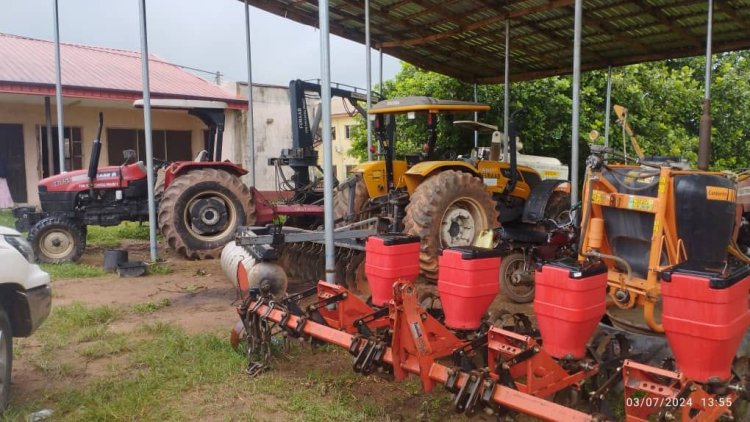
The Federal University of Agriculture, Abeokuta (FUNAAB), has launched an ambitious Agriculture Revitalisation Programme aimed at enhancing food security in Abeokuta and Ogun State. Recognizing its core mandate of Teaching, Research, and Extension Service, FUNAAB has responded to the urgent need posed by rising food costs across Nigeria.
RECOMMENDED: FUNAAB Presents NYSC Placement Opportunity at CWAY Nigeria Dairy for Graduates
Under the leadership of Vice-Chancellor Prof. Babatunde Kehinde, FUNAAB's initiative focuses on extensive production of cassava, livestock, and various crops. This effort was showcased during a guided media tour organized with Nigerian Television Authority (NTA) journalists.
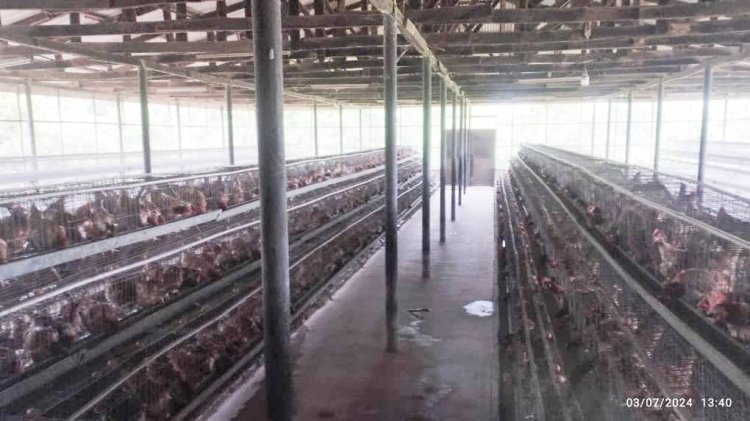
Key highlights of the tour included visits to several farms managed by FUNAAB's Directorate of University Farms (DUFARMS). These included the FUNAAB/NOLAP Cattle Ranch with tomato plantations and a 9-hectare maize farm, as well as a 2-hectare tomato farm established by Farm Practical Year (FPY) students.
The tour also featured the 25-hectare Irrigated Vegetable Farm at the FUNAAB/OORBDA boundary, cultivated by the Great Minds Farmers Cooperative. This farm boasts a variety of crops such as tomatoes, peppers, cucumbers, pumpkins, sweet corn, chili peppers, and potatoes. Additionally, FUNAAB showcased a 4-hectare pineapple plantation, a 2-hectare groundnuts farm, and an 8-hectare maize farm, alongside a poultry pen housing layers.
SEE MORE: FUNAAB Governing Council Inaugurated, Holds First Meeting in Abuja
Mechanised farming techniques were demonstrated at FUNAAB's mechanised unit, showcasing advanced equipment for tractor operations, planting, and harvesting.
During the tour, Mr. Lawrence Kehinde of the Great Minds Farmers Cooperative highlighted the rationale behind their focus on tomato cultivation and other vegetables. Further insights were provided by Mr. Olufemi Solarin, Head of the Crop Unit, and Mr. Oluseye Ogunlami, Head of the Mechanised Unit at DUFARMS, who elaborated on FUNAAB's agricultural projects and objectives within resource constraints.
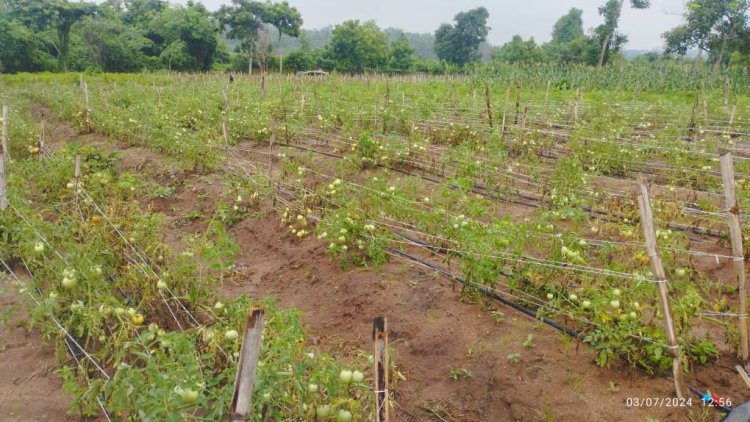
Separately, FUNAAB's Institute of Food Security, Environmental Resources and Agricultural Research (IFSERAR) showcased its research efforts with the Kalawad breed of goats, a product of cross-breeding initiatives aimed at improving meat quality for human consumption.
The university's commitment to food security was further underscored by the success of its Bio-Ethanol Cassava plantation, which recently harvested fresh tubers. FUNAAB Integrated Ventures (FIV) processed these into garri, fun, and odourless fufu, available for public consumption.
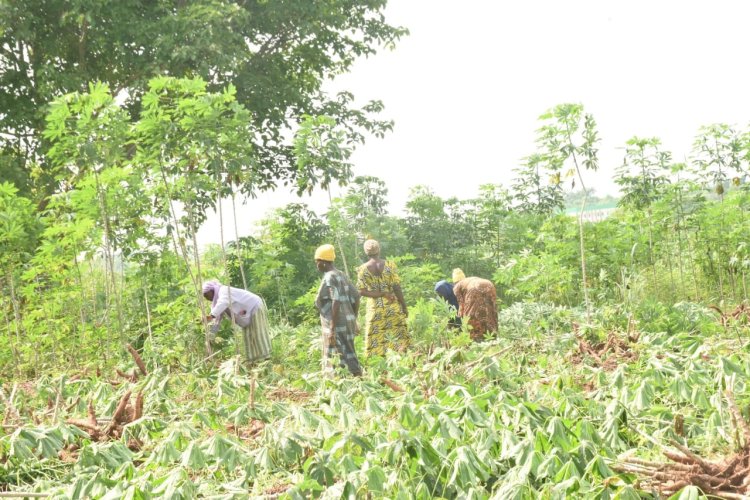
Mr. Adekunle Adeoti, Coordinator of FUNAAB Integrated Ventures, highlighted the university's investments in palm oil production, sachet and bottled water, and various food processing plants. He emphasized FUNAAB's dedication to supplying improved varieties of cassava, tomatoes, cashews, palm oil, and livestock to enhance local food security.
READ ALSO: ASUU FUNAAB Demands Improved Welfare and Payment of Outstanding Allowances

 Chris Oyeoku Okafor
Chris Oyeoku Okafor 